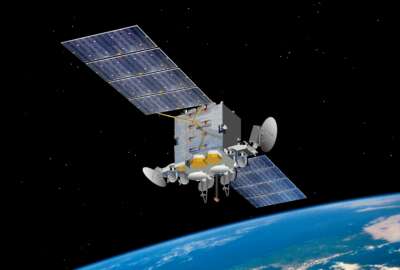
Higher military pay raise and Space Corps one step closer to reality with House NDAA passage
A bill authorizing $696 billion in spending for the Defense Department, raising military pay by 2.4 percent for service members and creating a new branch of the...
A bill authorizing $696 billion in spending for the Defense Department, raising military pay by 2.4 percent for service members and creating a new branch of the military for space operations passed the House by a vote of 344–81 today.
The bill authorizes enough funds to go head-to-head with sequestration as it makes a return in 2018 unless a budget deal is reached.
The 2018 defense authorization bill will have to work out its differences with the Senate version, which still has not been voted on.
Conflicts between the current state of the Senate bill and the passed House bill include military pay raise numbers, the establishment of the Space Corps, end strength numbers and a slight difference in topline amounts.
One thing both the House and Senate agree on, however, is giving the military funding to fill gaps in readiness.
“With this bill there’s a sense we are finally turning things around,” House Armed Services Chairman Mac Thornberry (R-Texas) said July 14 after the bill passed the House.
The bill goes above the Trump Administration’s $668 billion request for 2018. That budget already had readiness increases built into it. The House and Senate bills added items from the military’s unfunded wish list to their bills to put both toplines near $700 billion.
The authorization bill only authorizes funds for DoD and does not appropriate them. The House Appropriations Committee bill allows for $658 billion in spending. That bill does not include funding for military construction, which is handled by another piece of legislation.
White House issues
The administration has some qualms with the bill. In a statement of administrative policy released July 11, the White House laid out its grievances with the bill.
The administration is disappointed the bill does not allow for a new round of base realignment and closures for 2021.
DoD estimates it can save $2 billion a year by getting rid of some of its excess facilities.
The Trump administration is wary of the House bill’s establishment of a Space Corps.
The bill would order the DoD to establish the new corps by January 2019. It would be a distinct military service within the Department of the Air Force, in much the same way the Marine Corps operates as a service within the Department of the Navy. The Secretary of the Air Force would oversee both the Air Force and the Space Corps, but the chief of staff of the Space Corps would be a new four-star position, co-equal with the chief of staff of the Air Force. DoD would have to deliver reports to Congress in both March and August of next year on the details of how it plans to set up the new service.
The Space Corps would address some of the issues the military has with fragmented leadership and organization over space issues.
The administration’s statement says the Space Corps is premature and is studying an array of ways to better space issues.
The White House is also concerned about the use of emergency war funds for base budget funding. The House bill uses $10 billion in overseas contingency operations (OCO) spending for base budget operations.
“Funding these enduring requirements in OCO would complicate the funding stability for associated outyear costs and runs contrary to the purpose of OCO,” the statement reads.
The White House also took issue with a House provision that requires the executive branch to report sensitive cyber operations to Congress.
“DoD already regularly briefs the House and Senate Committees on Armed Services on major cyber operations. This provision would risk exposure, and potentially restrict use, of cyber capabilities; jeopardize foreign partnership cooperation; and impose additional, unwarranted administrative requirements on DoD,” the administration stated.
Tricky amendments
Two amendments turned heads during debate of the bill and started a lot of conversation from interest groups. One, introduced by Rep. Vicky Hartzler (R-Mo.), would have barred DoD from paying for medical treatment transitioning transgender persons to their identified sex.
The transgender policy “is ill conceived and contrary to our goals of increasing troop readiness and investing budget dollars into shortfalls of the past. By recruiting and allowing transgenders to serve openly in our military we are subjecting the taxpayers to high medical costs,” Hartzler said June 29.
Rep. Niki Tsongas (D-Mass.) rebutted Hartzler by reminding her the transgender policy was created in DoD by leadership with the consultation of medical groups and the RAND Corporation and concluded allowing transgenders in the military would not compromise readiness.
“I urge my colleges to refrain from relying on unfounded figures and assumptions,” Tsongas said.
Hartzler’s amendment was narrowly defeated.
Another amendment tried to claw back a provision added to the bill that explicitly states climate change is a direct threat to the national security of the U.S..
It requires the defense secretary to make a list of the 10 military installations most threatened by climate change and to explain how threats to those installations can be mitigated.
The provision also requires the defense secretary to address issues combatant commanders will face over the next 20 years due to climate change.
The provision survived and made it into the final bill.
Copyright © 2025 Federal News Network. All rights reserved. This website is not intended for users located within the European Economic Area.
Scott Maucione is a defense reporter for Federal News Network and reports on human capital, workforce and the Defense Department at-large.
Follow @smaucioneWFED






